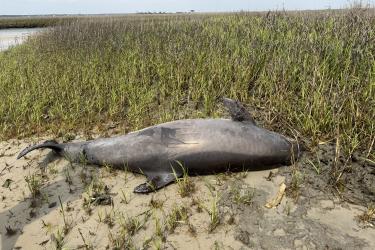To support our efforts to restore resilient coral ecosystems, NOAA has awarded approximately $771,000 in funding for 2022. The funding is supporting four projects that will enhance coral resilience and improve the long-term success and efficiency of shallow-water coral reef restoration in a changing climate.
Globally, coral reefs are rapidly declining in health. While coral restoration efforts have been successful at a local level, we need to develop innovative interventions. They will improve the efficiency and long-term effectiveness of coral restoration activities in order to restore resilient, genetically diverse, and reproductively viable coral populations at a larger scale.
Projects will enhance research and development of interventions to improve coral resilience to environmental stressors. They will also support novel techniques to improve the efficiency and effectiveness of coral population enhancement.
We have awarded funding for one new project and three continuing, multi-year projects.
New Project
Nova Southeastern University will work with Mote Marine Laboratory, The Florida Aquarium, and the University of North Carolina, Wilmington. They will determine the optimal light to maximize the survival and growth of young corals before, during, and immediately after the uptake of their algal endosymbionts. This will enable them to rapidly and effectively upscale production of genetically-diverse corals for restoration. ($356,210)
Continuing Projects
The University of Hawaiʻi is addressing a knowledge gap by assessing how selectively bred corals can increase adaptation in natural reproduction by improving the temperature tolerance of future coral populations. ($142,811)
The Pennsylvania State University is analyzing four coral species in the U.S. Virgin Islands and Florida to understand genetic and molecular mechanisms related to thermal tolerance and resilience. ($151,394)
Johnston Applied Marine Science is testing a new settlement substrate for coral larvae in order to scale up coral restoration efforts through the outplanting of sexually derived juvenile corals and build capacity in the Commonwealth of the Northern Mariana Islands to implement coral sexual propagation. ($120,907)
Ruth Gates Coral Restoration Innovation Grants
This competition is in direct response to the National Academies of Sciences, Engineering, and Medicine study on Interventions to Increase the Resilience of Coral Reefs. The NOAA Coral Reef Conservation Program funds these innovation grants, which are a part of NOAA’s effort to restore resilient coral ecosystems. Learn more about the Ruth Gates Coral Restoration Innovation Grants



